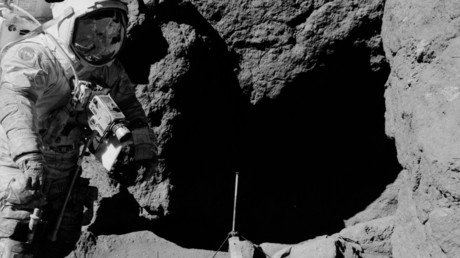Pompeo dismisses N. Korean nuke threats as ‘stray voltage’ ahead of meeting with Kim’s No. 2
Secretary of State Mike Pompeo says the US has no plans to offer concessions to Pyongyang in the wake of threats to revive its nuclear program, as he prepares to host Kim Jong-un’s second-in-command in New York.
Pompeo said the visit of Kim Yong-chol, the vice chairman of North Korea’s ruling party, and its frequent representative abroad, in the coming week is a sign that relations between the two states have only grown since the summit between Donald Trump and the North Korean leadership in June.
“I expect we'll make some real progress including an effort to make sure that the [next] summit between our two leaders can take place where we can make substantial steps towards denuclearization,” said the US diplomat, during an interview with CBS Face the Nation on Sunday.
Kim Yong-chol, a military general considered a hardliner, made a historic unofficial visit to New York in May, prior to the previous leaders’ meeting, which took place in neutral Singapore.
While the photo ops received media coverage, neither side put forward terms on which North Korea would abandon its missile program, nor how quickly the economic sanctions against the East Asian country would be dropped.
But Pompeo said that Pyongyang was already showing good faith by avoiding further flashpoints.
“The American people need to remember the North Koreans haven't launched a missile, haven't conducted a nuclear test. They allowed the return of American remains,” said Pompeo, who assumed his post in April. “I'm confident that we'll advance the ball again this week.”
Nonetheless, in a display typical of North Korea diplomacy, which likes to send out mixed messages – not unlike the current White House administration – Pyongyang this week claimed that “improvement of relations and sanctions are incompatible,” and claimed it could return to its policy of placing nuclear development at the same priority level as economic growth.
But Pompeo has dismissed the statement, which came from the foreign ministry, as a ploy that will have no impact on the talks with Kim Yong-chol.
“I am not worried about rhetoric, we’ve seen this as we’ve gone through negotiations. Stray voltage happens to be all around us. We know with whom we are negotiating, we know what their positions are. And President Trump’s made his position very clear: No economic relief until we have achieved our ultimate objective.”
No ballistic missiles seen in North Korea’s 70th anniversary parade https://t.co/fuhl0YuT61pic.twitter.com/nhUW4mDVQh
— RT (@RT_com) September 9, 2018
North Korea has conducted six suspected underground nuclear tests between 2006 and September 2017. They have resulted in a series of UN Security Council resolutions that have restricted Korean access to international financial systems, limited their imports and exports, and placed restrictions on movement of their vessels, and their workers’ ability to earn foreign currency abroad.
Donald Trump came in with an uncompromising policy of forcing North Korea to the table through unprecedented economic pressure, but the international consensus on the Pyongyang regime remains mixed, with Russia and China favoring a softer stance, and South Korea more focused on economic incentives for a détente.
Think your friends would be interested? Share this story!














